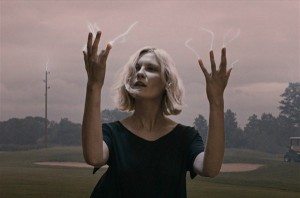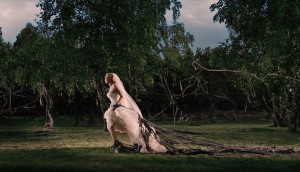 Depression is a bit like sex. Ok, stay with me. It’s something we know is there, but few of us rarely want to discuss it openly, let alone admit we require help with it. It is the elephant in the room, that thing that we know Uncle so and so suffered with – still he’s in a better place now. It can bubble up feelings of frustration for the bystander who wishes those affected would just snap out of it. “Probably just a phase. After all, we all get down from time to time.” One can become very frustrated trying to understand something that isn’t tangible. Those whom I know have experienced sever bouts of it (and I’m talking years, if not a lifetime!) often seem stuck and sometimes frustrated when trying to accurately describe it.
Depression is a bit like sex. Ok, stay with me. It’s something we know is there, but few of us rarely want to discuss it openly, let alone admit we require help with it. It is the elephant in the room, that thing that we know Uncle so and so suffered with – still he’s in a better place now. It can bubble up feelings of frustration for the bystander who wishes those affected would just snap out of it. “Probably just a phase. After all, we all get down from time to time.” One can become very frustrated trying to understand something that isn’t tangible. Those whom I know have experienced sever bouts of it (and I’m talking years, if not a lifetime!) often seem stuck and sometimes frustrated when trying to accurately describe it.
And, though I’ll be flayed for suggesting it, it is something of a fashionable thing to have. Artists often cite depression as their inspiration for their book, film, painting, acting and so on. And before you know it everyone is suffering from depression. Or are they? After all, there are those people who get a cold and think they’ve contracted Asian Flu. There are many people I know for whom a headache is a migraine! This does nothing for my sceptisism and before I know it, I’ve dismissed all sufferers with a sweeping generalisation. Then I can sigh a contented bigoted sigh that I’ve formed an opinion about something which doesn’t really affect me anyway, whilst this does little or absolutely nothing for those who have or are suffering real depression.
 Lars von Triers’ Melancholia illustrates the subject quite artistically, echoing von Triers own battle with the illness. The story starts with Melancholia, a planet on collision course with the Earth. They collide. Everything as we know it is destroyed. Then we flashback to the days before. The film focuses on the relationship between two sisters, Justine and Claire. The former suffers from depression and her wedding day is a long drawn out car crash. Claire on the other hand finds herself looking after her as well as her own family, juggling reposibilities with moderate success and little thanks. The inevitable end of this film, beautifully stated at the beginning in a montage accompanied by a rather over-used theme from Wagner’s Tristan und Isolde, abandons any hope we may have for the characters. In doing this Trier turns the film into a voyeuristic psychological study of their inevitable demise. Though oddly enough, the demise ends up being physical more than mental.
Lars von Triers’ Melancholia illustrates the subject quite artistically, echoing von Triers own battle with the illness. The story starts with Melancholia, a planet on collision course with the Earth. They collide. Everything as we know it is destroyed. Then we flashback to the days before. The film focuses on the relationship between two sisters, Justine and Claire. The former suffers from depression and her wedding day is a long drawn out car crash. Claire on the other hand finds herself looking after her as well as her own family, juggling reposibilities with moderate success and little thanks. The inevitable end of this film, beautifully stated at the beginning in a montage accompanied by a rather over-used theme from Wagner’s Tristan und Isolde, abandons any hope we may have for the characters. In doing this Trier turns the film into a voyeuristic psychological study of their inevitable demise. Though oddly enough, the demise ends up being physical more than mental.
There is some splendid (possibly Oscar-nominating) performances from Kirsten Dunst (who won Best Actress at Cannes 2011) and Charlotte Gainsbourg, whilst Keifer Sutherland, John Hurt and Charlotte Rampling give excellent support, unlike the characters they play! The cinematography is, if you’ll pardon the pun, out of this world and makes me wonder if much will be forever lost in it’s inevitable transfer to the small screen. More’s the reason for catching this film whilst it’s still in the moviehouses or failing that, get it on BluRay and watch on a big TV!
[rating=5]
-
Latest Reviews
- Ready Player One
- Joker
- Star Wars: The Rise Of Skywalker
- Halloween (2018)
- A Quiet Place
- Hidden Figures
- Arrival
- Jason Bourne
- Kingsmen – The Secret Service
- The Inbetweeners 2
- Intersteller
- 3 Days To Kill
- On The Waterfront
- Saving Mr Banks
- Captain Phillips
- The World’s End
- The Conjuring
- Bullitt
- The Conversation
- Alan Partridge: Alpha Papa
- Superman: Man Of Steel
- Star Trek: Into Darkness
- Hitchcock
- Moonrise Kingdom
- Zero Dark Thirty
- Lincoln
- Happy-Go-Lucky
- Beetlejuice
- Sightseers
- Argo
Choose a Genre